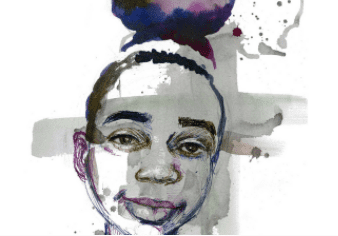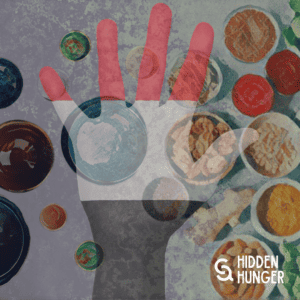
According to the National Coalition Against Domestic Violence, 1 in 3 women and 1 in 4 men have been a victim of some form of physical violence by an intimate partner within their lifetime. Viewed another way, this statistic equates to 10 million men and women abused every single year—or about 20 people every minute. Looking at these staggering numbers brings to my mind the story of one of these victims: Bresha Meadows.
Bresha Meadows was 14 years old when she allegedly took her father’s life. Along with her sister, brother and mother, Bresha had faced many years of physical abuse at the hands of their father and husband. In an interview, Bresha’s mother, Brandi Meadows, stated that “In the 17 years of our marriage he has cut me, broke my ribs, fingers, the blood vessels in my hand, my mouth, blackened my eyes.” When she filed for a protection order against her husband, Brandi said, “If he finds us, I am 100 percent sure he will kill me and the children.” After enduring so much pain and suffering, and with no apparent way out, Bresha made a conscious decision to save herself and her family from this ongoing abuse.
Bresha has been incarcerated for the last 10 months, facing a murder charge that, if she is tried as an adult, could result in a life sentence. In a recent court hearing, Bresha was offered a plea deal that would result in an 18-month sentence, as well as allowing the remainder of her time to be served in a mental treatment facility for trauma victims. Although this deal has not been finalized, for Bresha’s supporters, the chance of rehabilitation is a chance for hope. Bresha’s family also continues to support her, and they cannot wait for her to be back home.
For some of you reading this, Bresha’s story may not hit home. Or you may think it doesn’t mean anything to you personally. Yet with the astronomical number of 10 million men and women being harmed every year by domestic violence, could it be that you may know someone who is living as a survivor?
With the astronomical number of 10 million men and women being harmed by every year by domestic violence, could it be that you may know someone who is living as a survivor?
Some may say Bresha didn’t have to kill her father to get away. Others may argue it was her only way out. I have been on both ends of this spectrum in my personal life, so I clearly see both sides. A close family friend of mine tragically lost her life to domestic violence, and in that particular circumstance neither a restraining order nor the threat of prison could save her. I wonder: could the same action Bresha took to save her family have saved my friend? One never can tell.
I was a victim of domestic violence myself. I was always one of those strong, independent women who said a man would never get away with putting his hands on me…until the day it happened. What started with a verbal argument led to me being choked—and then, in the aftermath, questioning myself: Did I provoke him? Was it my fault? So I forgave him, through apologies and tears, and blamed myself for my part of the fight.
Gullible, right?
The second time it was a bite to my arm. The third time another attempted choking, which was stopped by my sister. Love is a blind roller coaster, but I felt like I was never getting off. I became fed up. Not fed up with him, fed up with me—I am so much better than the bruises and excuses.
I had a supportive group of people rallying around me, and I left him and a trail of tears behind me. In my case, the restraining order worked, and it empowered me to be strong and no longer fear the love that I felt I needed so badly. I spent two and a half years of my life making my life fit “love,” instead of real love fitting me. Brandi Meadows lost herself in the 17 years of her marriage. It cost her daughter a lifetime of trauma that in turn caused Bresha to take her father’s life. One may not be able to accept this, but I can wholeheartedly understand both the desperation in Bresha to save her family and the defeat in her mother to longer fight back.
Moving forward from an abusive situation requires support. This support is necessary, because some of us men and women lose our way. We can forget the “fearfully and wonderfully made” beings that we are, beloved children of the Most High who carry God’s image in our very skin. To gain knowledge is to grow in understanding: once we realize who we are, created in the likeness of God, we can then gain the strength and courage to fight back. Not to fight physically with our hands, but with the God-given ability to fight with our mind and not let the enemy win.
I implore you: be the voice, the haven, the listening ear for a man or woman facing domestic violence. Let us not allow another day to go by where we say nothing, allowing our sisters and brothers to suffer like Bresha Meadows and her family did. If you are reading this and are in or have been in a domestic violence relationship, please seek help. I know it is hard. I know it seems impossible to walk away, but please do so…while you still can. If you need a resource, start by contacting the National Domestic Violence hotline, which has phone, TTY, and chat options: 1-800-799-7233 / 1-800-787-3224 (TTY) / theHotline.org.
Please spread the word.
Erica Watts is a Sider Scholar for Christians for Social Action.


